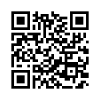PENERAPAN MODEL PEMBELAJARAN COOPERATIVE SCRIPT UNTUK MENINGKATKAN KEAKTIFAN SISWA DALAM PEMBELAJARAN PPKn DI MTSN 4 GUNUNGKIDUL
Downloads
Abstract
(Title: Application of Cooperative Script Learning Model to Improve the Activities of Students in PPKn Learning in MTsN 4 Gunungkidul). This study aims to describe the application of cooperative script learning models to increase the activity of students in learning PPKn material position and function of the Pancasila class VIIIA MTsN 4 Gunungkidul. The population of this study was all students of class VIII A MTsN 4 Gunungkidul in Gunungkidul Regency with a total of 34 children. All members of the population are used as research samples. Data collection is done by observation. This observation is carried out to monitor the process and impact of learning needed to organize corrective measures to be more effective and efficient. Observation is focused on the process and results of the learning action along with the events that surround it. The results of the study showed that students' activities in learning had shown high participation, students were able to build cooperation in groups to solve problems faced. Students are able to solve problems, answer questions, present work results well. This shows the activity of students towards subjects is quite high with an average of 55% before the action becomes 76% in the first cycle and becomes 87% in the second cycle. Students' responses to the subjects of Education Authority turned out to be influenced by the learning model used by the teacher. This can be seen from the results which show an increase from the first cycle of 76.9% to 92.3% in the second cycle.
Keywords: activity, cooperatif script, participation, Pancasila
Downloads
Suprijono, A. (2009). Cooperative Learning. Yogyakarta: Pustaka Pelajar.
Sukmara, D. (2003). Implementasi Program Lifeskill. Bandung: Mugni Sejahtera.
Dimyati dan Mudjiono. (2006). Belajar dan Pembelajaran. Jakarta: Rineka Cipta
ICCE UIN. (2005). Demokrasi, HAM, dan Masyarakat Madani. Jakarta: Prenata Media.
Musbikin, I. (2010). Guru yang menakjubkan.Yogyakarta: Buku Biru.
Asmani, JM. (2012). Tips menjadi guru inspiratif, kreatif dan inovatif. Jogjakarta: Diva Pres.
Muslich, M. (2008). Dasar Pemahaman Penelitian Pengembangan. Jakarta: Bumi Aksara
Muslich, M. (2008). Pembelajaran Berbasis Kompetensi dan Kontekstual. Jakarta: Bumi Aksara.
Hamalik, O. (1989). Metodologi Pengajaran Ilmu Pendidikan Berdasarkan Pendekatan Kompetensi. Bandung: Mandar Maju.
Muttaqien, R. (2006). Active Learning. Bandung: Nusa Media.
Slameto. 2003. Belajar dan Faktor-faktor yang Mempengaruhinya. Jakarta : Rineka Cipta.
Soehino. 1991. Ilmu Negara.Yogyakarta : Liberty.
Hamid, S. (2011). Metode Edutainment. Jogjakarta: Diva Press.
Rumini, S., dkk. (1997). Psikologi Pendidikan. Yogyakarta: IKIP Yogyakarta.
Sudjana. (1991). Teori-Teori Belajar Untuk Pengajaran. Jakarta: Universitas Indonesia.
Arikunto, S. (1990). Dasar-Dasar Evaluasi Pendidikan. Jakarta: Bumi Aksara.
Suharsono. (2004). Melejitkan IQ, IE & IQ. Depok: Inisiasi Press.
Suprayekti. (2003). Interaksi Belajar Mengajar. Jakarta: Depdiknas.
Winarno. (2007). Paradigma Baru Pendidikan Kewarganegaraan. Jakarta: Bumi aksara.
Winkel. (2001). Psikologi Pendidikan. Jakarta: Raja Grafindo Persada.
The authors who publish this journal agree to the following requirements. The author retains the copyright regarding the work being simultaneously licensed below Creative Commons Attribution ShareAlike License.

Jurnal Diksi by Faculty of Languages, Arts, and Culture, Universitas Negeri Yogyakarta is licensed under a Creative Commons Attribution-ShareAlike 4.0 International License.
Based on a work at http://journal.uny.ac.id/index.php/diksi




















